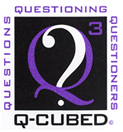It all began with an idea - getting students to ask questions. Inspired by her mentor, Lewis Thomas, MD, a physician and essayist, University of Arizona surgery professor Marlys Witte, MD began to develop the Curriculum on Medical Ignorance (CMI) in 1984. Witte and her team organized an ignorance class for medical students as well as an undergraduate freshman colloquium on medical and other ignorance under the NIH supported Medical Student Research Program (MSRP). MSRP, which was founded in 1981, has awarded fellowships to approximately 500 medical students.
When disadvantaged high school students joined medical student research apprentices in 1987, the Summer Institute on Medical Ignorance (SIMI) expanded. The program, which placed medical and high school students in dozens of medical laboratories at the UA, added K-12 science teachers in 1991 and has now provided approximately 300 high school students and 100 teachers with research apprenticeships. In SIMI, science teachers and students work with medical professionals and medical students to practice ignorance-based learning techniques as they conduct research.
Closely linked to SIMI is the Q-cubed program, which is now funded by the National Institutes of Health Science Education Partnership Award (SEPA). Q-cubed, or Questions, Questioning and Questioners, encompasses the central features of inquiry-based learning and discovery, sponsors semi-annual conferences and facilitates interaction among apprentice questioners in SIMI and MSRP programs and "professional" questioners working in medical research. The NIH SEPA award is also funding the development of a medical ignorance collaboratory in virtual and real space that will promote questioning and collaborative research around the nation and the world.

